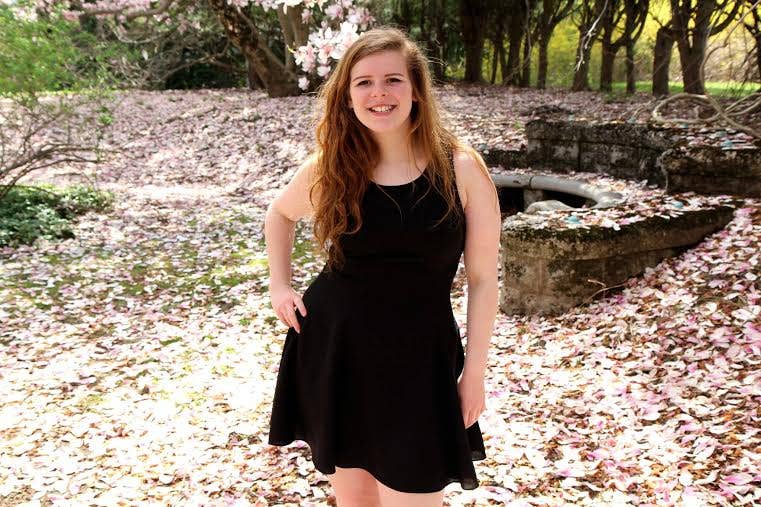Dear Cheryl Tiegs: My Weight Doesn't Define My Health
BMI is a whole load of BS.
 Mariia Korneeva / Shutterstock
Mariia Korneeva / Shutterstock In 2016, former model Cheryl Tiegs told E! News that she disapproved of Sports Illustrated's cover.
For its annual Swimsuit edition, the publication featured model Ashley Graham. As a former model for Sports Illustrated, Tiegs called her a “beautiful face,” but “not healthy in the long run.”

Primarily, Tiegs followed Dr. Oz’s recommendation that women should maintain a waist size of 35 inches or less; otherwise, “full-figured” models glamorized unhealthy lifestyles.
However, Graham's waist size fit Dr. Oz’s rule; according to her portfolio on Ford Models, Graham’s waist measures approximately 29.5 inches. That doesn’t matter, though.
Tiegs’s unsolicited criticism not only undermines Graham’s achievement but orients around fat-shaming and negative body image. While Graham’s spotlight benefits the fat acceptance movement, Tiegs abused the opportunity to shame women that don’t look like herself.
Oftentimes, weight separates women. Suddenly, we’re split into a binary: skinny and healthy or fat and unhealthy.
Why has health become synonymous with a thinner frame? Over the last decade, experts have been calling out the body mass index, or BMI, and its inaccuracy to determine a healthy weight.
The Guardian explains this measure has been used for over a hundred years. Additionally, it fails to address any other factors beyond height and weight to determine an individual’s health. Just like waist size, we’re demanding our bodies to formulas and numbers.
I’ve been overweight for most of my life. From pre-school to twelfth grade, I was bullied and fat-shamed. I felt ashamed of my weight. As a result, I never considered myself healthy — even when playing on two softball teams at once.
Pediatricians strongly advised me to lose weight. One doctor advised my mom to lock up the cabinets and refrigerator, so I couldn’t access food on my own.
I’ve always seen my body as a problem as if it needed to be fixed. For years, I fought against my natural weight by strict dieting, exercising profusely, and even fasting several days a week.
So many people commented on my weight yet never paid attention to my behavior. No one ever stopped to ask what I thought about my own health.
Recently, I reclaimed my weight. I weigh the heaviest I’ve ever been now, and my BMI is on the brim of obesity. I’m also the most body-accepting I’ve ever been.
I strive to talk about body image unapologetically all day, every day. I focus on food groups over calories.

RELATED: 5 Reasons Why Fat Shaming Totally Doesn't Work
My size and number on the scale don't define how I see myself in the mirror.
I refrain from entertaining body-shaming language those around me (friends included) use and try to turn the conversation into positivity. I compliment other women on their appearance along with their personality, intelligence, and style rather than about how skinny they look.
Ultimately, I want to empower other women and challenge the notion heavier weight doesn’t equal poor health.
Sometimes, it’s exhausting and challenging.
The other day, I dragged a dozen items into a dressing room and none fit the way I wanted. In the back of my head, I heard my peers taunt me as I looked into the mirror. This is also because I have a uniquely shaped body. My pants size ranges from 11 to 15; my top size ranges from medium to extra-large.
I’ve also reclaimed my health. I’m confident to say I maintain a physically healthy lifestyle.
Although I’m technically overweight according to the BMI scale, I make healthy choices every day. I practice a plant-based diet full of bananas, kale, avocado, and veggie burgers. I choose the stairs over the elevator whenever I can. I follow yoga videos on YouTube to wind down at night.
And if anyone comments on my figure negatively, I don’t owe them that explanation. My weight doesn’t define my physical health. My body is not defined by a number.
If we can take back anything from Tiegs’s comments, it’s to discuss body image, free of fat-shaming. My weight and health don’t concern anyone but myself.
Danielle Corcione is a freelance writer who writes about health and wellness and beauty. Her work has appeared on Motherboard, the Billdfold, the Establishment, Femsplain, and MoneyUnder30.
